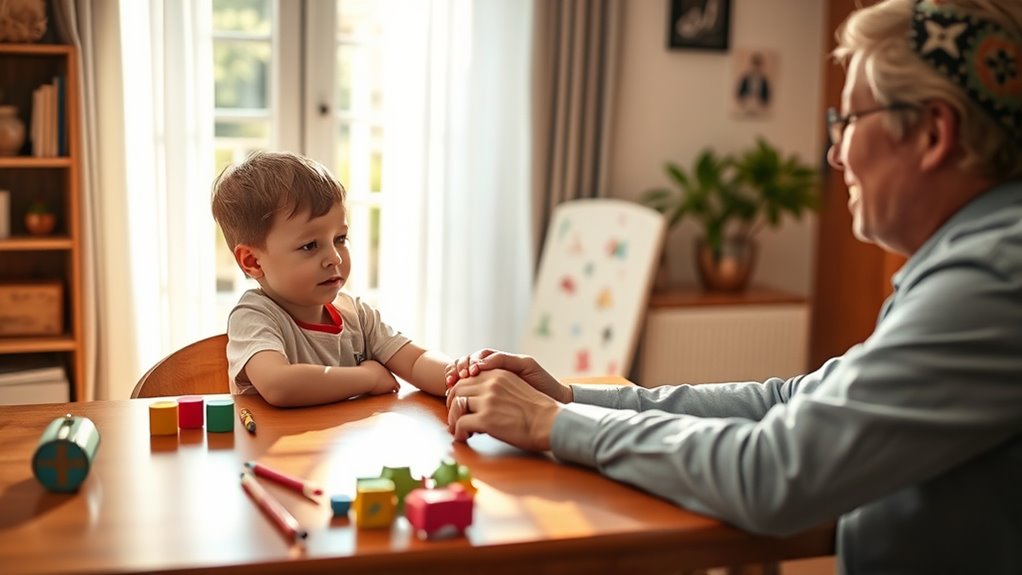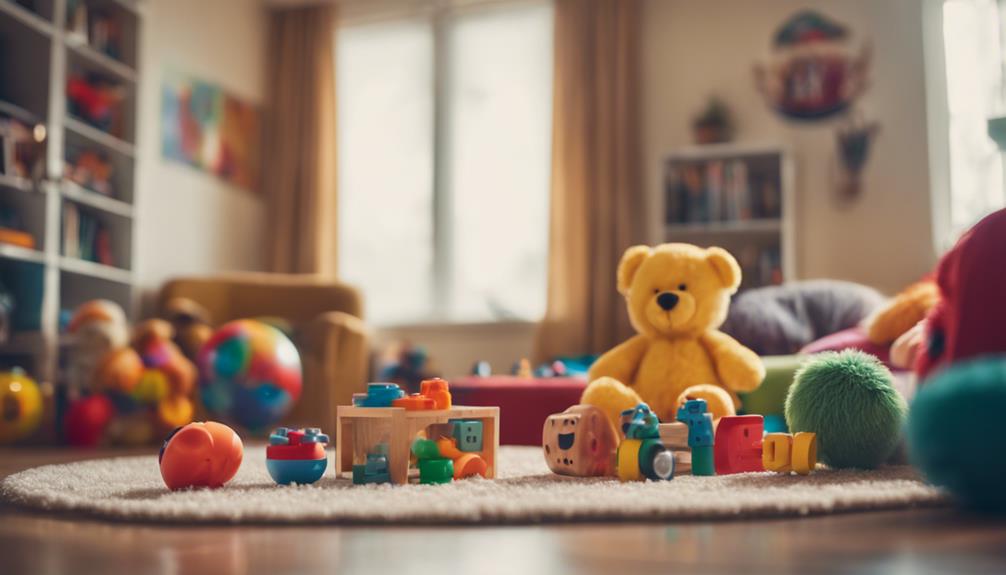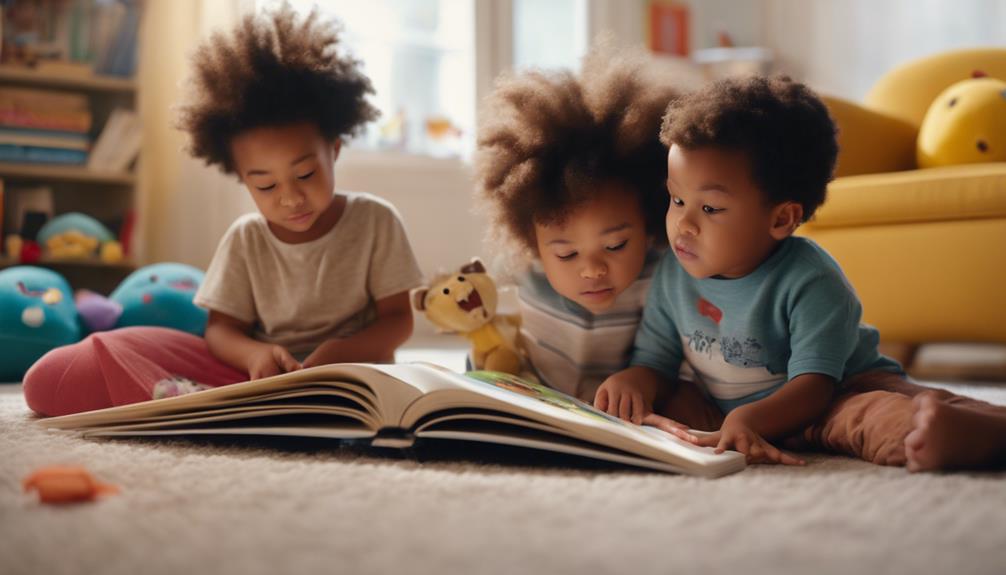Choosing mediation over conflicts like a War of Roses helps create a stable, supportive environment for your child’s well-being. It encourages respectful dialogue, reduces emotional stress, and focuses on the child’s needs rather than personal disagreements. Mediation promotes trust, cooperation, and smoother passages, setting a positive example for your kids. If you keep exploring, you’ll discover more ways to prioritize your child’s emotional health through effective co-parenting strategies.
Key Takeaways
- Mediation offers a neutral, respectful space that prioritizes the child’s emotional well-being over parental conflicts.
- It fosters effective communication and cooperation, reducing misunderstandings and promoting trust between parents.
- Using mediation can lessen emotional stress on children and promote a stable, secure environment.
- It encourages collaborative problem-solving, leading to tailored co-parenting plans that benefit the child’s development.
- Mediation emphasizes long-term cooperation, modeling healthy conflict resolution and ensuring consistent support for the child’s needs.

Have you ever wondered how well our society protects and nurtures its youngest members? When it comes to ensuring a child’s well-being, the way parents communicate and work together after a separation or divorce plays a vital role. Instead of engaging in conflicts or bitter disputes, adopting effective co-parenting strategies can make a significant difference. These strategies focus on creating a stable environment for the child, prioritizing their needs above petty disagreements.
Good parental communication is at the heart of successful co-parenting. It means keeping conversations focused on the child’s best interests, rather than personal grievances. Instead of letting anger or frustration dominate discussions, you learn to listen actively, share information clearly, and remain open to compromise. This approach reduces misunderstandings and minimizes the risk of conflict spilling over into the child’s life. When you communicate effectively, you build a foundation of trust and cooperation that benefits everyone involved. Incorporating effective communication techniques can further enhance these efforts.
Effective communication focused on the child’s best interests builds trust and reduces conflict in co-parenting.
Mediation offers a practical alternative to the emotional rollercoaster of courtroom disputes. It provides a neutral space where both parents can come together to discuss their concerns with the help of a trained mediator. This process encourages respectful dialogue and helps you find common ground, rather than letting disagreements escalate into costly and stressful litigation. Mediation also emphasizes problem-solving, enabling you to develop tailored co-parenting plans that suit your child’s unique needs. By focusing on solutions rather than blame, you foster a more positive environment for your child’s development.
Choosing mediation over conflict also demonstrates a commitment to your child’s emotional health. When parents work collaboratively, children feel more secure and less caught in the middle of adult disputes. This stability can have long-lasting benefits, helping children adapt better to changing circumstances and reducing the risk of psychological stress. As a parent, your willingness to communicate openly and seek peaceful resolutions sends a powerful message about the importance of cooperation and respect.
In the end, protecting and nurturing your child’s welfare involves more than legal agreements—it’s about how you engage with each other daily. Building strong co-parenting strategies and maintaining constructive parental communication are essential steps. They not only facilitate smoother transitions and shared responsibilities but also serve as a model for your child on how to handle conflicts maturely. By choosing mediation and focusing on collaboration, you create a healthier, more supportive environment where your child’s well-being remains the top priority.
Frequently Asked Questions
How Does Mediation Improve Child Welfare Outcomes?
Mediation improves child welfare outcomes by fostering parental cooperation and encouraging a child-centered approach. When you engage in mediation, you work collaboratively with the other parent, reducing conflict and creating a more stable environment for your child. This process helps you focus on your child’s needs, leading to better communication, less stress, and more consistent care. Ultimately, mediation supports healthier relationships and promotes your child’s overall well-being.
What Training Do Mediators Receive in Family Disputes?
Like a skilled navigator, mediators learn to steer family disputes with care. They receive training in handling cultural sensitivities, ensuring respect for diverse backgrounds, and maintaining confidentiality agreements to protect privacy. This preparation equips mediators to facilitate open dialogue, reduce conflicts, and prioritize child welfare. Their expertise helps families find common ground, making resolution more effective and less adversarial, ultimately supporting healthier family dynamics.
Are There Specific Laws Supporting Mediation Over Litigation?
You’ll find that legal frameworks and mediation statutes often support mediation over litigation. Many jurisdictions have laws encouraging or requiring mediators to resolve family disputes amicably, emphasizing child welfare and cooperation. These statutes aim to reduce court burdens and foster better communication between parties. By understanding these legal supports, you can see how mediation is prioritized as a constructive alternative to costly and adversarial court battles, ultimately benefiting everyone involved.
How Long Does the Mediation Process Typically Take?
Imagine you’re in a mediation session to resolve a child custody dispute. The process timeline varies, but typically, mediation duration ranges from a few sessions over several weeks to a few months. Factors like case complexity and participant cooperation influence the length. Usually, you can expect the process to be completed within 4 to 8 weeks, helping you reach agreements more quickly than lengthy court battles.
What Are Common Challenges Faced During Family Mediation?
During family mediation, you often face challenges like emotional resilience and conflict resolution. Strong emotions can hinder progress, making it tough to reach agreements. You might struggle with communication barriers or lingering resentment, which can slow the process. Staying calm and open-minded helps you navigate these issues more effectively. Remember, mediation aims to foster constructive conflict resolution, so patience and emotional strength are key to overcoming common hurdles and achieving positive outcomes.
Conclusion
By choosing mediation over conflict, you can truly transform child welfare from a battlefield into a place of healing. It’s not just a small shift—it’s like turning a raging storm into a gentle breeze. When you prioritize understanding and cooperation, you’re building a future where children feel safe and loved, not caught in the chaos of endless battles. Remember, even the tiniest act of kindness can spark a revolution, changing lives forever.









